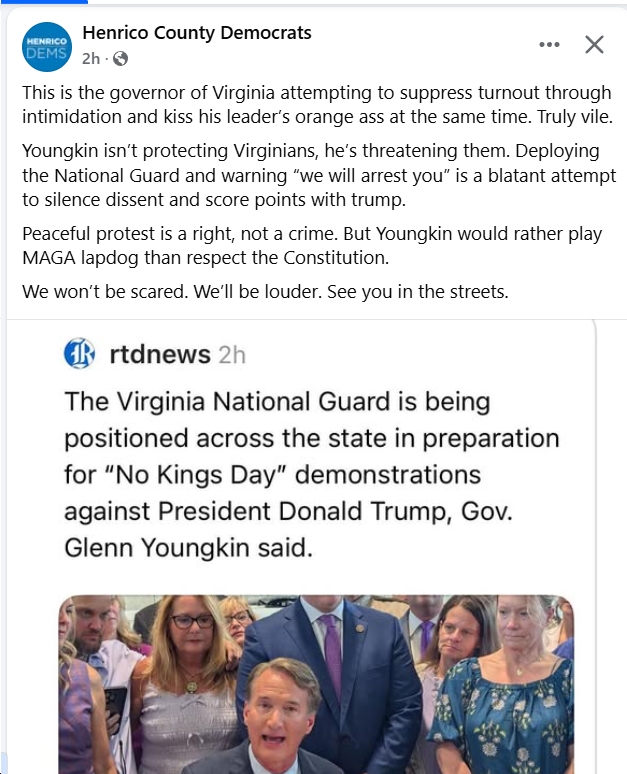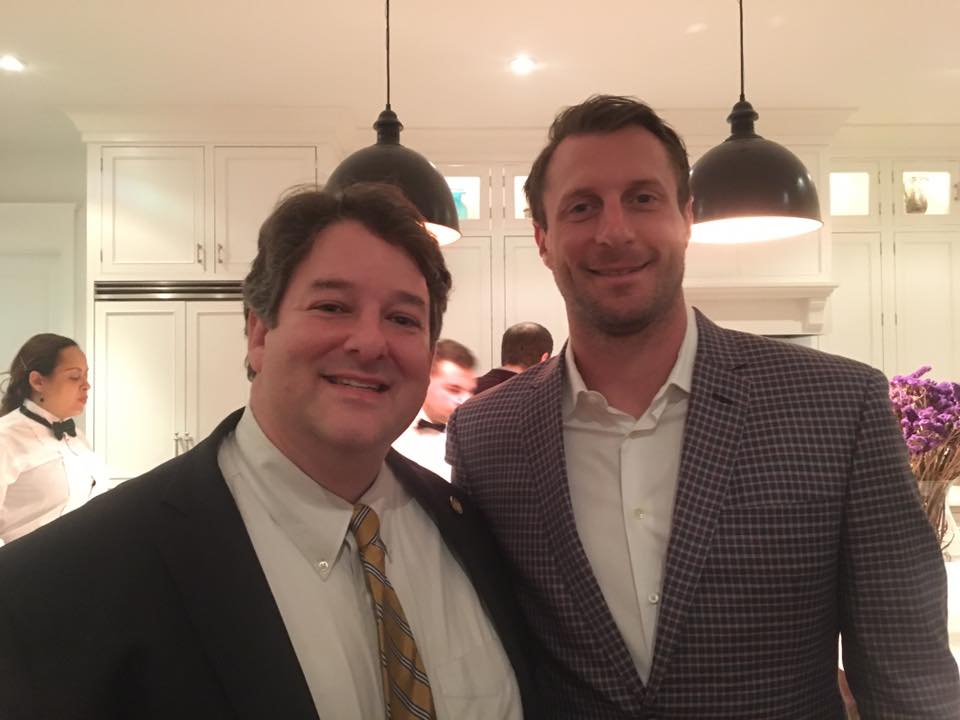 When the ombudsmen of the major paper, The Washington Post writes a column like Patrick Pexton: Listening to Native Americans, one has to wonder. In that column we learned that were the team now led by Quarterback Robert Griffin III ever to return to play its games within the city limits, the current mayor, Vincent Gray
When the ombudsmen of the major paper, The Washington Post writes a column like Patrick Pexton: Listening to Native Americans, one has to wonder. In that column we learned that were the team now led by Quarterback Robert Griffin III ever to return to play its games within the city limits, the current mayor, Vincent Gray
said recently that, if the football team were once again to play its games in the District, a discussion would have to be held on its name.
This is within the context of yet another lawsuit against the team’s name coming in March, a symposium at the Museum of the American Indian on the topic of team nicknames in sports, and recent news coverage of a swimming team at a high profile girls school, Holton Arms, where the swimmers wore feathers and face paint. And as Paxton notes,
columnists have been talking with Native Americans about these issues for a couple of decades.
I will explore Paxton’s column anon, but I will start with this for those who do not know the team’s history – the nickname has absolutely nothing to do with honoring Native Americans.
Washington’s NFL team was originally based in Boston, from which it was eventually moved to DC by its owner, laundry mogul George Preston Marshall, who in the current location was the last NFL owner to have a black player, in part because his was until expansion the southern-most NFL team and he had a radio monopoly from DC south to Florida.
Boston in those days was the home of baseball’s Braves. When the NFL team was founded, the ownership tried to use that name but were forced to backdown in the face of legal opposition from the baseball franchise and the thus switched to the related – and far more offensive – name of “Redskins.” No one made any pretense that the baseball team had picked its nickname because of any respect for the traditions of Native Americans. Instead that name came from an important local – and national – historic event on December 16, 1775, when to protest an unpopular tax local patriots dressed in Native American garb and dumped the wares of the East India Tea Company into Boston Harbor. Native-American names at least could claim some relevance to local tradition in the original New England setting, but the nickname lacked even that relevance in the National Capital. It is like a team from Minneapolis or from Brooklyn still keeping what had been relevant local names in LA – Lakers or Dodgers – or team once in New Orleans continuing to call itself the Jazz when in Salt Lake City.
Returning to Paxton’s column, he writes about having talked with Native American groups and individuals about what the Holton Arms swimmers did, and admits that his words are probably insufficient to describe the depth of feeling he encountered. Consider these two paragraphs:
Wearing face paint and feathers, many Native Americans feel, is a taking of their cultural and religious traditions. The paint and feathers have distinct meanings for each tribe and nation, and they often are worn only because an individual has earned them through tests, deeds and ceremonies of which white culture has little knowledge or appreciation.
The best analogy I could come up with is the way we treat U.S. military uniforms and insignia. It is against federal law for a civilian to wear the uniform of a U.S. soldier, sailor, airman or Marine for personal gain. Similarly, within the military, if you wear a medal or insignia that you didn’t earn, it is a crime under military law.
Paxton does not mention that at least some educational institutions have dropped nicknames – St.John’s University in New York City changed from Redmen to Red Storm, and Stanford changed from from Indian to Cardinal.
Paxton quotes Suzan Shown Harjo, a Cheyenne and Hodulgee Muscogee, who was part of the first suit against the NFL teams name, which the team lost on original hearing but won on appeal. She was herself a competitive swimmer. She does not think the Holton Arms girls need to diminish their own strength by using “symbols they don’t understand or respect” – a lack of understanding I think very relevant to the nickname of the NFL team.
Allow me to quote somewhat more extensively. Paxton has spoken not only with her, bu with other Native Americans, and all see that nickname as racist:
It hearkens to the early European settling of this country, when French and British authorities put bounties on the heads, or skins, of Native American men, women and children.
“Every major national Native American organization has declared that the name of the pro football team in our nation’s capital is the most offensive thing native peoples can be called in the English language and has called for it to be changed,” she said.
“It’s okay if others aren’t offended by it,” she added. “They should respect that we are offended and that this is something they can do something about – in our world where we can do little about most things, this is something we can actually do something to fix. They should care about it even a tiny bit because we care about it so much.”
Paxton is not alone among writers from the Washington Post who have offered their words in support of the move to change the team’s name.
And I note that there are precedents for professional sports franchises changing their nicknames because they were offensive. Two of those involve our national capital. When the former baseball franchise moved from DC to Minnesota, it changed from the Senators to the Twins (in honor of the location within the Twin Cities metro area). THe city obtained an NBA franchise that for a while kept its original name from Baltimore, the Bullets, a name in recognition of an ammunition factory of some prominence. In light of the great gun violence a few decades back its then owner Abe Pollin dropped that name and replaced it with alliterative name of the Washington Wizards.
I have often explained to students that to Native Americans the term “Redskin” is just as offensive as are the words “Kike” or “Hebe” are to Jews, “Wetbacks” to Mexican-Americans, “Polack” to Polish-Americans, “Slant” or “Gook” to Asian-Americans, or “Coon” or “Nigger” to African-Americans.
One has to wonder whether Dan Snyder, the current owner of the NFL franchise, is sensitive enough to these matters that the rising storm of protest against the name will have any effect upon him. Based on his track record, he is unlikely to change the name unless forced to legally. My suggestion has always been if he wants to keep the name he should change the symbol to a potato. Until recently Redskin Potato Salad might have been considered complimentary to the team’s performance, at least since the first departure of Joe Gibbs. The presence of RGIII has somewhat changed that.
So perhaps the best we can hope for is that, like Patrick Paxton, DC’s fans will begin to recognize that Native-Americans
flesh-and-blood Americans, as much a part of the warp and weft of the living fabric of this country as George Washington or Thomas Jefferson.
Those who have been a part of this community for any period of time have experienced that – among our prominent members of Native=American descent are Meteor Blades, Navajo, and Ojibwa. At the annual conventions there is a Native-American caucus. Some of us who are not ourselves of that descent participate in helping with actions such as fuel bought through a Native American owned company for those on a reservation, and to support a house that provides protection and assistance to victims of sexual abuse.
Remember, Redskins is the most offensive thing native peoples can be called in the English language according to many native people.
I hope Paxton is correct when he begins his final paragraph by writing
I don’t think this city’s football fans or the Holton-Arms swimmers are racist.
I know he is correct in the rest of his words in that paragraph:
I’m sure they feel they’re honoring the warrior spirit. But most Native Americans don’t feel that way. We honor them most by listening.
It is long past time that this shame in our national capital be erased.
It is long past time that we recognize the offensiveness of the team’s nickname.
It is long past time that the NFL itself demand that if the ownership will not change the name on its own, the league demand it.
In the meantime, those of us who understand the offensive need not only to speak out, as has Paxton, but refuse to support that name in any way – in our words, in any purchase of team merchandise.
One would hope that some of the team’s stars would recognize the offensiveness of the name and also speak out against it.
We can hope.
And knowing that the ombudsman of the paper has now joined other prominent voices, maybe this glacier is starting to melt?















